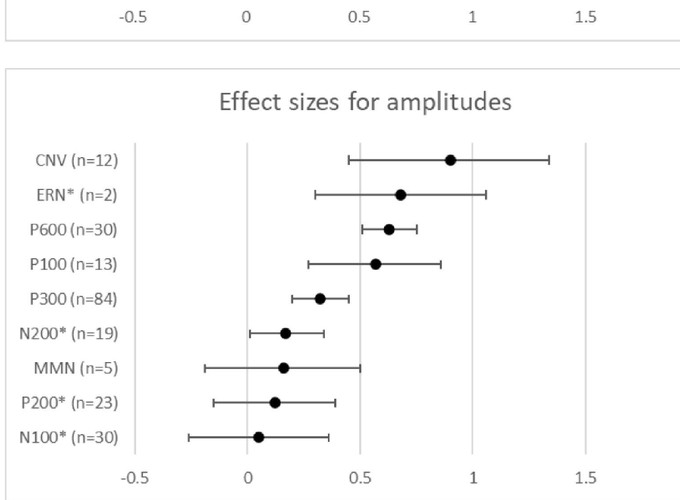The use of event-related potentials in the investigation of cognitive performance in people with Multiple Sclerosis: Systematic review
Abstract
A biomarker of cognition in Multiple Sclerosis (MS) that is independent from the response of people with MS (PwMS) to test questions would provide a more holistic assessment of cognitive decline. One suggested method involves event-related potentials (ERPs). This systematic review tried to answer five questions about the use of ERPs in distinguishing PwMS from controls: which stimulus modality, which experimental paradigm, which electrodes, and which ERP components are most discriminatory, and whether amplitude or latency is a better measure. Our results show larger pooled effect sizes for visual stimuli than auditory stimuli, and larger pooled effect sizes for latency measurements than amplitude measurements. We observed great heterogeneity in methods and suggest that future research would benefit from more uniformity in methods and that results should be reported for the individual subtypes of PwMS. With more standardised methods, ERPs have the potential to be developed into a clinical tool in MS.
